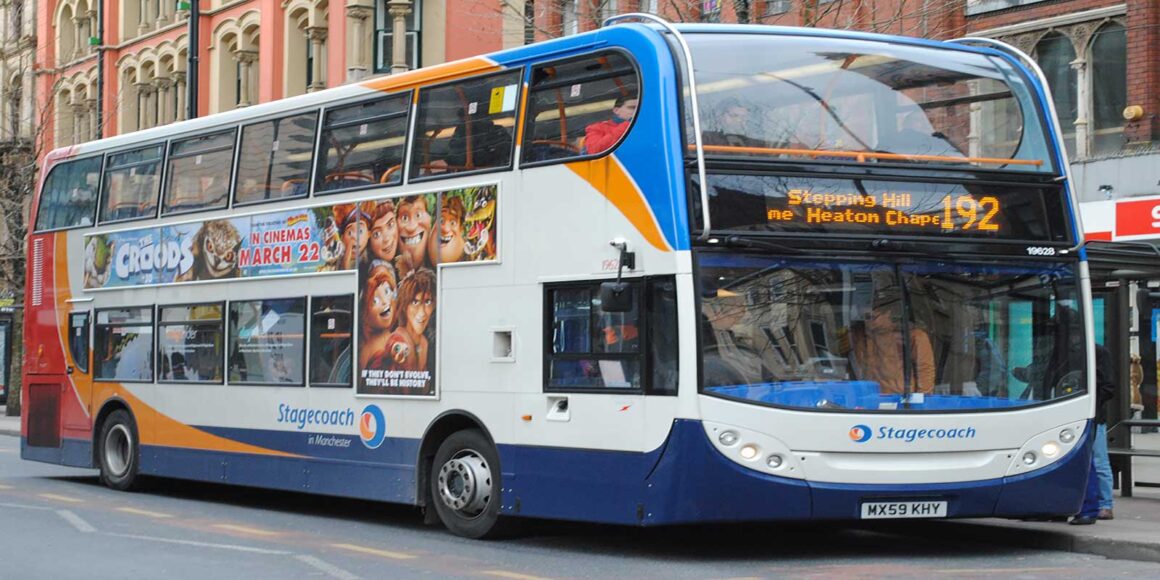

UNITE HAS launched a campaign amongst members working in the bus industry throughout Britain.
Britain’s largest private-sector union has announced that it will be bringing together bus reps from across the Britain and Ireland to develop a plan to fight back. This could lead to a wave of strike action in the autumn and winter.
Pay and conditions
Stagecoach drivers and other workers in Scotland, Chesterfield, Manchester, the North-East, Lancashire and Liverpool and South Wales are all balloting, or have already been balloted, for strike action. Arriva employees in North-West England and North Wales are also being balloted.
The issues are broadly the same everywhere – despite working throughout the pandemic and putting themselves and their families at considerable risk as a result, drivers have either not been awarded a pay rise, or have been offered below-inflation increases which amount to a real-terms pay cut. Most of Stagecoach’s local operating companies failed to give the workers a pay rise in 2020. In some areas, such as in South Wales, Stagecoach drivers are paid as little as £10.50 per hour. Unite has demanded Stagecoach meet its ‘fair’ pay claim of the Retail Price Index inflation figure (3.8% in July) plus 1%.
Stagecoach operates around 24 percent of the UK bus market outside of London, plus inter-city coach services including Megabus and the Oxford Tube. The company’s latest accounts show it made profits of £58.4 million, and it has £875 million of available liquidity. Their claims of poverty because of the pandemic are completely false.
Bus drivers across the country often work in very poor conditions. As well as low pay, workers face long hours on the road, with few breaks. In many areas there are issues with lack of access to basic rest and toilet facilities. In London, “remote sign-on”, where drivers will not be paid until they sign on at the cab, may be introduced, which will also allow bus companies to further degrade or shut down drivers’ facilities.
Unite the fight
Although this is a national dispute which concerns all bus workers at Stagecoach, there has been little attempt by the union to unite the struggles in different areas and depots.
Calling a national reps’ meeting is a step in the right direction, but what is needed to secure a meaningful pay rise is a coordinated, national campaign of strike action across the country, rather than isolated, staggered strikes in different parts of the country, that the company can deal with separately.
The issues faced by Unite members at Stagecoach and Arriva are the same as those faced by members in other public transport companies. In the UK’s highly deregulated privatised transport market, Stagecoach is often one of several companies contracted by local authorities to provide bus services. To ensure the strikes are as effective as possible, Unite should begin balloting drivers employed by other companies for strike action, and bring them out at the same time.
Public transport is not the only industry currently in dispute. HGV drivers and other employees in commercial transport are also engaged in struggles over pay and conditions. Unite members delivering to Tesco, Sainsbury’s, the Co-op, Budgens, Londis, Marks & Spencer, Aldi, Very, and Castle Cement are all gearing up for confrontation. There are also disputes starting in manufacturing, such as at Weetabix and GKN.
We should take the opportunity to unite all these battles and roll out a fight for better pay and conditions for workers across the country. Unite’s new general secretary, Sharon Graham, was elected on a platform of militancy and workplace organisation. We should hold her to these promises. Strikes in public transport should be synchronised with those in deliveries and elsewhere.
Graham also promised to establish shop stewards’ combines to organise the struggle in each industry and develop industrial plans for each sector. With industrial action starting across the country, now is the perfect opportunity to do so.
Unite’s new campaign is not just an issue for bus workers. Britain’s buses are dominated by the so-called “Big Five” companies – Arriva, Go-Ahead, National Express Stagecoach and First Group – all massive corporations which profit from an essential public service. While bus workers suffer low pay and terrible conditions, members of the public face an increasingly expensive, inefficient and poor service as a result of privatisation and profiteering.
Having decent public transport is a key political issue for working class people and communities across the country. Unite should raise the demand, in the Labour Party and elsewhere, for local councils to take back control over routes, as the first step towards full nationalisation of buses and all public transport. It should initiate local campaigns through trades councils and solidarity committees in support of bus workers, and to raise such demands.
The first step is to build support for a coordinated strike on Stagecoach and other companies to demand a raise of 15% or £15 an hour – whichever is higher.